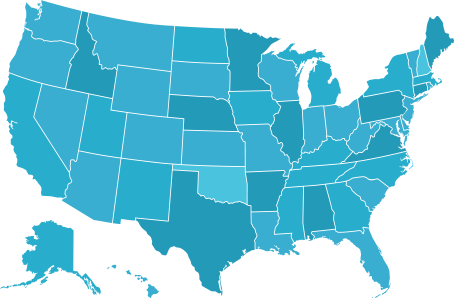
DataTrace recently expanded the historical depth of its geographic title plants across the country, including many of the counties in Florida. The company maintains the largest state-of-the-art title plant footprint in Florida, operating digital title plants in all 67 counties with over 8.4 million recorded document images.
With the surge in property development and construction in the Sunshine State, there's a growing demand for fully automated tools for title searches across Florida. A recent Home Builders Weekly report highlighted that, in the first quarter of this year, there were approximately 26,840 new residential construction permits issued in Florida, marking a 31% increase compared to the first quarter of last year.
We interviewed our Florida market expert, Karen Burns, for further insights into how state-based title plants are used by title companies, and to explore their historic back plants which in some cases reach back to the 19th century
Why is the expansion of geographic title plants significant?
Karen: Our company currently operates over 1,800 digital title plants across the country. Many of these plants are powered by our innovative artificial intelligence and automation technology which provides users with faster, more accurate title searches and examinations. For example, our geographically indexed title plants are searched by using multiple property parameters, including legal descriptions, property addresses, and assessor parcel numbers. These enhancements have made the title search and examination process more efficient and economical.
In a state like Florida where development is active, being able to quickly obtain an accurate chain of title is a huge advantage. The increased image and plant depth, as well as the additional historical data and back plants, enable searchers and examiners to skip the time-consuming task of searching public records or data by grantor/grantee names.
Can you give us specific examples of how developers are using DataTrace title plant data.
Karen: Here’s an example. Imagine a developer needs to check if a property is free of liens. They can work with their title company to access our automated and digital title plant data for an answer in minutes. Or perhaps a developer needs the status of recorded documents such as a notice of commencement and other required documents for new construction. Title companies can use our title plants to easily search the developments and determine which lots have sold and which ones are available, giving developers a clear picture of their project progress.
DataTrace title plants use digitized geographically-based data. Why is that important?
Karen: Unlike public records and most other title data providers which offer grantor/grantee information, our title plants use geographically posted indexes to reduce the time required to search title. With the grantor/grantee approach, a title company needs to manually sort thousands of records linked to grantor and grantee names, which takes an inordinate amount of time and effort to locate the development in question.
This process is made even more arduous, given duplicative names of developers and developments. For instance, if a title professional searches for a developer “Jim Smith,” the large quantity of data results may have nothing to do with the actual developer. It’s the same scenario when searching by development name since many have the same or similar names. If the title professional needs to do an update, they will need to repeat the same tedious research process. Our geographical posted database minimizes the problem of filtering documents that are irrelevant to a specific legal description.
Are Florida back plants available in your system?
Karen: Yes, DataTrace Florida back plants, are accessible in most of the counties including Miami-Dade, Broward, Hillsborough and Palm Beach. We have digitized these records in our back plants to eliminate the time and expense involved in trips to the local county courthouse for access. Instead, title companies can research the digitized information from anywhere. In building these proprietary databases, our commitment to deliver best-in-class quality ensures the back plants are of the highest resolution to provide the clearest copy of historical indices to our clients. Our data operations team is at the forefront, preparing to release additional digitized back plants in Florida ahead of the new year.
How far back do your records go?
Karen: In some counties our indices date back to the 1800s. For instance, Broward dates back to 1884, Hillsborough to 1848, Orange to 1863 and St. Johns to 1820. Our back plant data and historical records are crucial for high-value residential and/or commercial properties, especially those without mortgages. Let’s say a property has been in the family forever without ever having a mortgage on it. Searchers must go back in time to find the deed and determine when certain owners took title. That conveyance information could be in a back plant showing that it was valued at only $20,000, but regardless, you still must chain it back and confirm where they took title. By accessing our online database, users can trace ownership history and property values, such as finding the historical deed, ensuring accurate title conveyance. Searchers can see the actual tract books people wrote back in the day.
Automate your title and tax insights with DataTrace's comprehensive title plants in Florida! Explore Now and gain faster, more accurate digital access to historical data and efficient title searches across the state and nationwide.
 Geographic Coverage
Geographic Coverage





